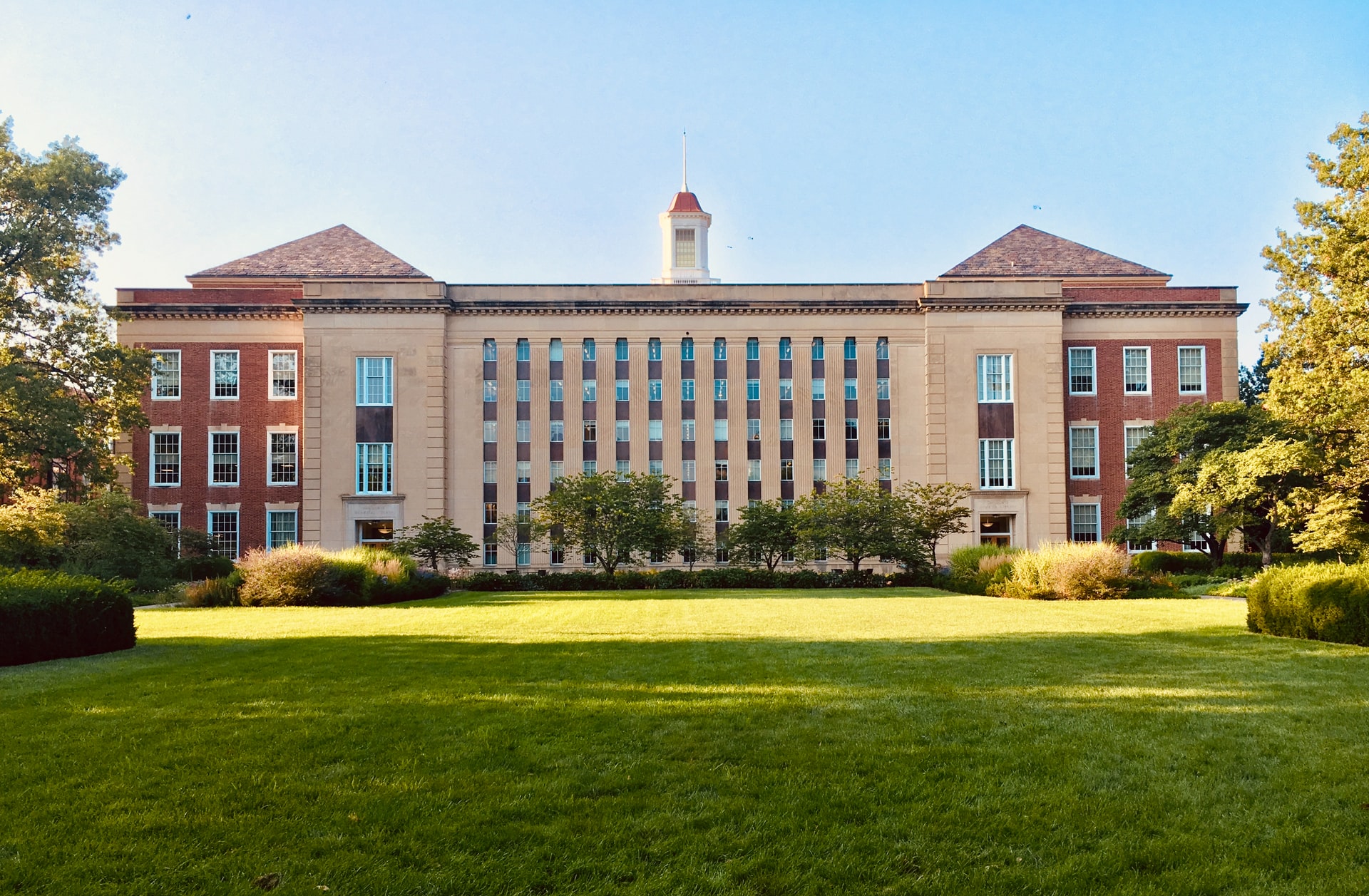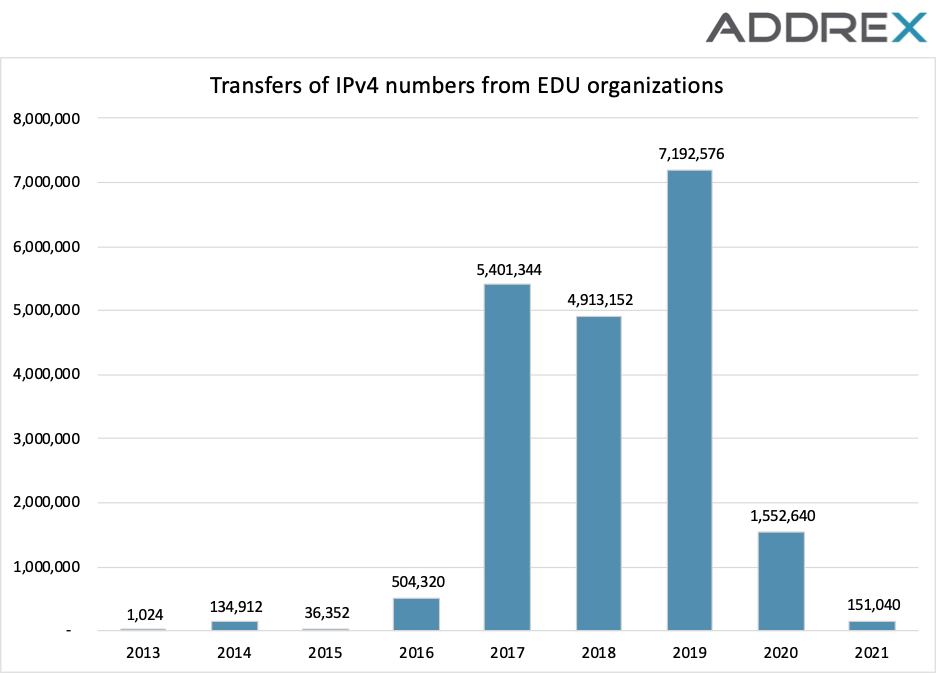
However, colleges and universities are also becoming creative in raising funds independently to cover budget shortfalls. One of the ways educational institutions are securing relief is through the monetization of their IPv4 number blocks. Addrex has helped multiple educational institutions navigate IPv4 monetization and overcome impediments to a successful sale.
Monetization of legacy IPv4 resources is not a new concept. Addrex pioneered this market in 2011, when it facilitated the court-approved transfer between Microsoft and Nortel. Many educational institutions are aware of the IPv4 opportunity, and some have already taken advantage of it. These organizations have transferred almost 20 million IPv4 numbers, equivalent to 303 x /16 blocks, 19 million transferred from US institutions alone.

Finance and legal divisions are sometimes advised against IPv4 monetization due to the perceived challenge of switching from legacy numbering schemes to more modern solutions. IPv4 blocks were allocated to these institutions throughout the 1980s and 1990s, and they often continue to use these numbers internally, when there is no longer any real need. Even externally, most college and university networks do not require the use of an entire /16 number block, and their use has frequently been replaced with business ISPs or commercial cloud solutions. In cases where current internal numbering schematics must remain, there are possible solutions such as Carrier Grade Network Address Translation (CGNAT). In addition, some universities hold both Class B (/16 = 65,536) and Class C (/24 = 256) blocks. Organizations in such situations sometimes opt to consolidate use onto the /24 to achieve higher efficiency and free up the /16. When educational institutions must keep IPv4 numbers for public-facing infrastructure, we recommend they acquire a small IPv4 block and move necessary resources there to monetize the /16 block.
Addrex, Inc. (www.addrex.net) operates a global IPv4 Marketplace, has facilitated the transfer of over 30 million IPv4 numbers, and works with educational institutions to help monetize their IPv4 assets. Funds secured from such transactions help fill budget shortfalls and support underfunded projects or university scholarships and stipends. Monetization of IPv4 blocks helps colleges and universities secure funds for important causes and sustains the core infrastructure of the ever-growing Internet.
505 Huntmar Park Drive, Suite 220, Herndon, Virginia 20170, United States
USA: +1 (703) 436-8050
© 2024 Addrex, Inc. All rights reserved. Privacy Policy
